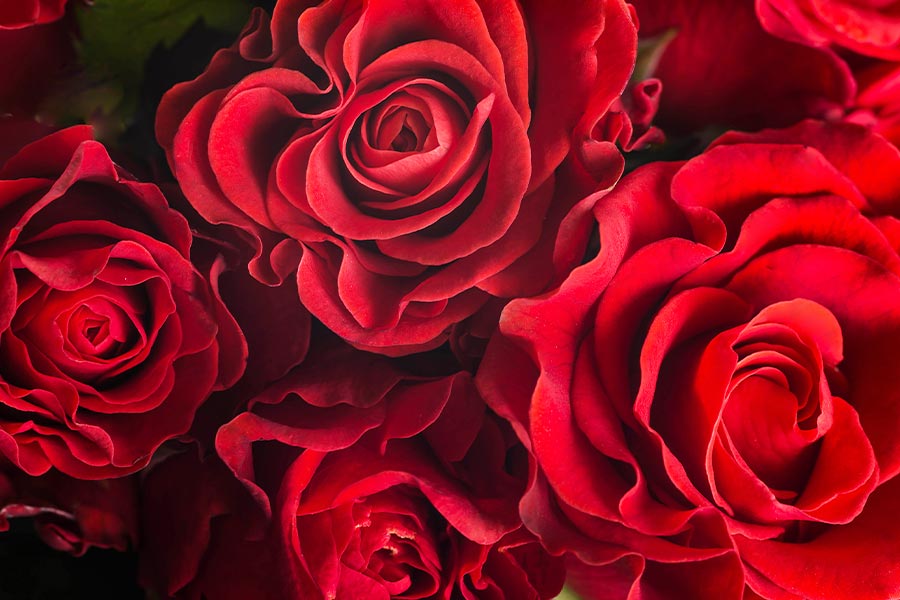Sixteen-year-old Caroline De Souza had her best friend Nafisa Ali transfixed by the end of her glorious rendition of a Chopin masterpiece. Played on the vintage piano her paternal grandfather had gifted her, it saw her bestie undergo a transformation of sorts. In a matter of moments, Nafisa’s eyes brimmed with tears.
“You have magic in your fingers,” she told Caroline, moments after she had finished playing. The pianist had an ethereal glow on her face. “God is in the details,” she said nonchalantly, as she carelessly flicked her fingers across the keys.
“Wait a minute, what do you mean?”
Caroline shrugged it off with a brisk wave of her hand. “Oh, nothing ya!”
Music is what makes us alive. Without it, everything feels still and stagnant
“No, I want to know.” Nafisa, who prayed to Allah five times every day, was not going to let this go. Caroline knew it too, the moment the word ‘God’ had crept into their conversation.
“Well, it’s this feeling I have had lately, that God resides in the details. Not only in the music we hear, but those inert notes on paper it stems from. These intricate black designs,” said Caroline, pointing to the sheet of music she had been following. Nafisa, who had been lying with her head propped on a pillow, sat up at once.
“You have my attention. Why do you think Allah resides there?”
Caroline stared at her friend long and hard, before replying: “It’s because of the meaning these details afford an otherwise meaningless world. The uplifting music they create. The very music that makes us ask questions of ourselves, of this world…” The glow on her face intensified as she went on.
“If the details, that is the notes, were skewed a tad bit, the music wouldn’t be half as evocative.”
Then she added, “Music is what makes us alive. Without it, everything feels still and stagnant…”
Twenty-five years ago, I found myself at a camp organised by the company I was working with, at Ganeshpuri, a village in Mumbai’s outskirts. I remember this song playing on loop, a lucid rendition of Om Namah Shivaya by Gurumayi, the spiritual leader of an ashram nearby. Instantly, I felt something in me awaken. That had me believe that I was more than my pain.
It was a turbulent time and that music was like a godsend. I found myself returning to that ashram several times after, and even ended up buying an audio cassette of Gurumayi’s glorious chanting from the local temple shop.
The only true faith that exists is our common love for God

Music can be one way of understanding faith and God Pixabay
Only a couple of days later, Caroline met Nafisa again. This time at their mutual friend Simran Puri’s home. The occasion was Ganpati Puja or Ganesh Chaturthi. It was fun chatting with the Puri clan, who spoiled the duo with modaks and thandai. Somewhere along the course of their conversation, Nafisa recounted the events of the other day to Simran, telling her how that “piano experience” only reinforced her belief in a formless God.
“Don’t get me wrong, Simran. It’s just, I’m not into idol worship.”
Simran nodded. Both her friends had skipped praying in front of their idol of Ganesha.
“It’s cool, Nafisa. You’re here, that’s all that matters. Besides, God is everywhere.”
“I know what you mean!” quipped Caroline in excitement. “I never go to Mass in Mount Mary Church, much to my parents’ annoyance. I prefer walking up the steps opposite the church and lighting candles at the shrine of Mother Mary on the top.”
“Why do we even have temples?” complained Simran, a tad too loud. Loud enough for her extended family to hear. Her friends exchanged glances uneasily, not quite sure if they should reply. Simran’s father spoke suddenly, out of character with his usually reticent nature: “Isn’t it wonderful that Lord Ganesha has brought us all together? People of diverse faiths united by a universal God?”
“Darling, I think it’s best if…” It was Simran’s mother, who was quickly cut off by her husband. “No, Seema, there’s been so much talk lately about how religion is dividing people, I think this needs to be said. Are you comfortable, girls?” Glancing at Nafisa and Caroline, who both nodded demurely, not quite knowing what was coming.

We can build all the places of worship we like, but they will house all Gods. For God exists in the notes of music and in the spaces between. Yet, God isn’t confined to them. God is the love that resides there, wherever ‘there’ might be
“Who’s to say Allah isn’t in this house?” This question seemed directed at Nafisa. In reality, it was more an affirmation of what she had believed all along. That God was everywhere, not only in the direction she prayed in. Caroline nodded. Her God was the same as Nafisa’s and Simran’s, she thought. In the form of music that moved her. That led her to believe there was more to life than mere ephemera. Simran’s father went on, rather animatedly:
“There’s only one God, and that’s Brahman. I don’t say this, Hinduism does. I keep Ganesha at home because that’s my faith. Nafisa prays in the direction of the Kaaba because that’s her faith. Yet, we have our individual Gods, our respective faiths. Caroline’s faith is lighting candles and making a wish outside the main church.” And then he paused, as though to allow his words to sink in, before continuing: “Faith cannot be contained by anything. It’s why our beloved Ganesha must return to the ocean. Correct me if I’m wrong, but the only true faith that exists is our common love for God…’’
The girls, overwhelmed, nodded their heads in unison.
It has been ages since I visited Ganeshpuri. About a year ago, I listened to another one of Gurumayi’s near-hallucinatory renditions of Om Namah Shivaya online. The day I was hospitalised for pneumonia. I believe it saved me.
God is in the details. Details so minute that they defy comprehension. Like the music that saved me, as much as any temple visit might have.
We can build all the places of worship we like, but they will house all Gods. For God exists in the notes of music and in the spaces between. Yet, God isn’t confined to them. God is the love that resides there, wherever ‘there’ might be.
Love is my faith…A faith that cannot be contained. By walls, directions or religion.
Rohit Trilokekar is a novelist from Mumbai who flirts with the idea of what it means to love. His heart’s compass swerves ever so often towards Kolkata, the city he believes has the most discerning literary audience.


